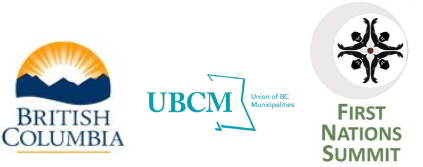CivicInfo Library
Joint Indigenous and Local Government Initiatives and Relations
| A collection of resources related to initiatives, agreements, arrangements, partnerships, and the provision of services between Indigenous governments and organizations, and local governments in British Columbia. |  Service Partner |
< Previous Resource 3 of 5 Next >
City of Powell River and Tla’amin Nation reaffirm relations
Publisher: Powell River Peak
Author: Bindle, David
Subject(s):
Posting Date: July 21, 2018
Year Published: 2018
Abstract:
Tla’amin Nation and City of Powell River leaders re-signed a Community Accord between the two governments on July 20 at Dwight Hall. The document was first agreed to in 2003, predating Tla’amin becoming self-governing in 2016 by 13 years.
The accord was written as a framework for reconciliation, according to Tla’amin hegus Clint Williams, “before reconciliation was a buzzword.”
Williams and Powell River mayor Dave Formosa were signatories to the document, which was witnessed by Tla’amin elders and legislators, and city councillors and staff. It has been rewritten to include changes in governance.
At the time of the original signing on May 10, 2003, the agreement was between District of Powell River and Sliammon First Nation. The new document changes those names to City of Powell River and Tla’amin Nation.
In March, during discussions with the city on land and properties, Williams said the accord was the foundation for everything between the city and the first nation.
Former chief Maynard Harry, an original signatory of the agreement along with retired Powell River mayor Stewart Alsgard, said the accord is unique in Canada.
The Community Accord recognizes:
The accord was written as a framework for reconciliation, according to Tla’amin hegus Clint Williams, “before reconciliation was a buzzword.”
Williams and Powell River mayor Dave Formosa were signatories to the document, which was witnessed by Tla’amin elders and legislators, and city councillors and staff. It has been rewritten to include changes in governance.
At the time of the original signing on May 10, 2003, the agreement was between District of Powell River and Sliammon First Nation. The new document changes those names to City of Powell River and Tla’amin Nation.
In March, during discussions with the city on land and properties, Williams said the accord was the foundation for everything between the city and the first nation.
Former chief Maynard Harry, an original signatory of the agreement along with retired Powell River mayor Stewart Alsgard, said the accord is unique in Canada.
The Community Accord recognizes:
- All residents of Powell River and Tla’amin trace their origin to societies of different cultural traditions, beliefs and values.
- Residents of the city and members of Tla’amin have created, or have had created on their behalf, distinct local governing institutions.
- Powell River and Tla’amin deem recognition, understanding and reconciliation the foundation of their communities’ common good. Paramount is respect for and appreciation of each other’s diverse backgrounds.
Local Government(s):
First Nation(s):
Full Text Word Count: 626